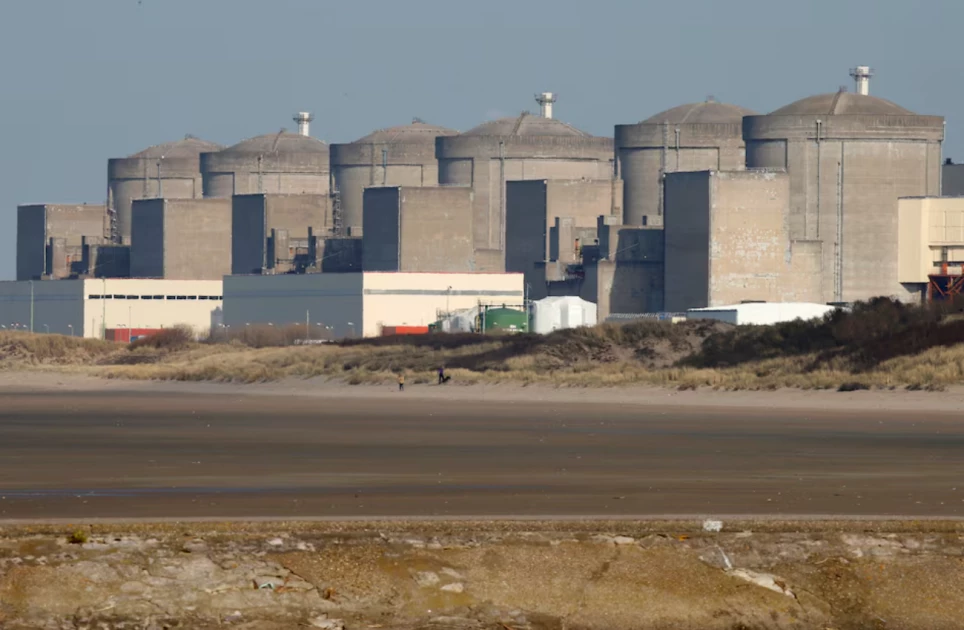Swarm of jellyfish shuts French nuclear plant

The Gravelines nuclear power plant is seen across the beach in Petit Fort Philippe, northern France, March 10, 2017. REUTERS/Pascal Rossignol/File Photo

Audio By Carbonatix
Four reactors at
France's Gravelines nuclear power plant were shut down late Sunday due to a
swarm of jellyfish in the cooling systems, operator EDF said on Monday, likely
due to rising water temperatures because of global warming.
The plant in
northern France is one of the largest in the country and cooled from a canal
connected to the North Sea. Its six units produce 900 megawatts of power each,
or 5.4 gigawatts in total.
The entire plant
has now temporarily halted production as the other two units are offline for
planned maintenance, EDF data showed.
There is no damage
to the filter pumps; they just need to be cleaned, said a source with knowledge
of the matter, suggesting the reactors will be able to restart quickly.
The beaches around
Gravelines, between the major cities of Dunkirk and Calais, have seen an
increase in jellyfish in recent years due to warming waters and the
introduction of invasive species.
"Jellyfish
breed faster when water is warmer, and because areas like the North Sea are
becoming warmer, the reproductive window is getting wider and wider," said
Derek Wright, marine biology consultant with the U.S. National Oceanic and
Atmospheric Administration.
"Jellyfish
can also hitch rides on tanker ships, entering the ships' ballast tank in one
port and often getting pumped out into waters halfway across the globe,"
he said.
An invasive
species known as the Asian Moon jellyfish, native to the Pacific Northwest, was
first sighted in the North Sea in 2020.
The species, which
prefers still water with high levels of animal plankton like ports and canals,
has caused similar problems before in ports and at nuclear plants in China,
Japan and India.
"Everyone
talks about nuclear being clean, but we don't think about the unintended
consequences of heat pollution," Derek said.
EDF said it did
not know the species of jellyfish involved in the shutdown, and that teams were
working to restart the reactor safely.
Reactors 2, 3, and
4 at Gravelines stopped automatically just before midnight when the filter
drums of the pumping stations became packed with a "massive and
unpredictable" swarm of jellyfish, and reactor 6 went offline several
hours later, the EDF notice said.
The event did not
affect the safety of the facilities, staff or the environment, it said.
The nuclear plant
is also near beaches that have become hotspots for migrants attempting to cross
into Britain. The invasive jellyfish are not considered a threat, as they do
not have a poisonous sting.


Leave a Comment